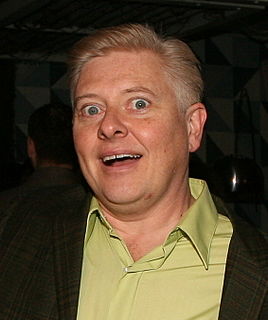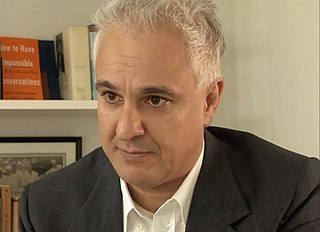A Quote by Carl Sagan
An atheist has to know a lot more than I know. An atheist is someone who knows there is no god. By some definitions atheism is very stupid.
Quote Topics
Related Quotes
An atheist, like a Christian, holds that we can know whether or not there is a God. The Christian holds that we can know there is a God; the atheist, that we can know there is not. The Agnostic suspends judgment, saying that there are not sufficient grounds either for affirmation or for denial. At the same time, an Agnostic may hold that the existence of God, though not impossible, is very improbable; he may even hold it so improbable that it is not worth considering in practice. In that case, he is not far removed from atheism.
No it's not!" said Constable Visit. "Atheism is a denial of a god." "Therefore It Is A Religious Position," said Dorfl. "Indeed, A True Atheist Thinks Of The Gods Constantly, Albeit In Terms of Denial. Therefore, Atheism Is A Form Of Belief. If The Atheist Truly Did Not Believe, He Or She Would Not Bother To Deny.
An atheist is someone who is certain that God does not exist, someone who has compelling evidence against the existence of God. I know of no such compelling evidence. Because God can be relegated to remote times and places and to ultimate causes, we would have to know a great deal more about the universe than we do now to be sure that no such God exists. To be certain of the existence of God and to be certain of the nonexistence of God seem to me to be the confident extremes in a subject so riddled with doubt and uncertainty as to inspire very little confidence indeed.
I should have died when I was sixteen, when I planned to commit suicide. And I was an atheist until then. I was an atheist, and what the heck, if life sucks what do you have to live for? If you're an atheist, it's just about living, you know? So at the time, I didn't want to wake up anymore and then seriously, God chased me down and proved that he was real and that he loved me.
As I’ve said, I’ve never believed in God, which technically makes me an atheist (since the prefix “a” means “not” or “without”). But I have problems with the word “atheism.” It defines what someone is not rather than what someone is. It would be like calling me an a-instrumentalist for Bad Religion rather than the band’s singer. Defining yourself as against something says very little about what you are for.
Why am I an atheist? I ask you: Why is anybody not an atheist? Everyone starts out being an atheist. No one is born with belief in anything. Infants are atheists until they are indoctrinated. I resent anyone pushing their religion on me. I don't push my atheism on anybody else. Live and let live. Not many people practice that when it comes to religion.
An atheist before Darwin could have said, following Hume: I have no explanation for complex biological design. All I know is that God isn't a good explanation, so we must wait and hope that somebody comes up with a better one. I can't help feeling that such a position, though logically sound, would have left one feeling pretty unsatisfied, and that although atheism might have been logically tenable before Darwin, Darwin made it possible to be an intellectually fulfilled atheist.
I am not agnostic. I am atheist. I don’t think there is no God; I know there’s no God. I know there’s no God the same way I know many other laws in our universe. I know there’s no God and I know most of the world knows that as well. They just won’t admit it because there’s another thing they know. They know they’re going to die and it freaks them out. So most people don’t have the courage to admit there’s no God and they know it. They feel it. They try to suppress it. And if you bring it up they get angry because it freaks them out.
I'm an atheist, and the concept of god for me is all part of what I call 'the last illusion.' The last illusion is someone knows what is going on. Nearly everyone has that illusion somewhere, and it manifests not only in the terms of the idea that there is a god but that it knows what's going on but that the planets know what's going on.
People are invariably surprised to hear me say I am both an atheist and an agnostic, as if this somehow weakens my certainty. I usually reply with a question like, “Well, are you a Republican or an American?” The two words serve different concepts and are not mutually exclusive. Agnosticism addresses knowledge; atheism addresses belief. The agnostic says, “I don't have a knowledge that God exists.” The atheist says, “I don't have a belief that God exists.” You can say both things at the same time. Some agnostics are atheistic and some are theistic.
I am an atheist. There, I said it. Are you happy, all you atheists out there who have remonstrated with me for adopting the agnostic moniker? If "atheist" means someone who does not believe in God, then an atheist is what I am. But I detest all such labels. Call me what you like - humanist, secular humanist, agnostic, nonbeliever, nontheist, freethinker, heretic, or even bright. I prefer skeptic.
Tell me," said the atheist , "Is there a God really?" Said the master, "If you want me to be perfectly honest with you, I will not answer." Later the disciples demanded to know why he had not answered. "Because the question is unanswerable," said the Master. "So you are an atheist?" "Certainly not. The atheist makes the mistake of denying that of which nothing may be said... and the theist makes the mistake of affirming it.



































